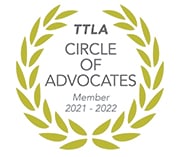The loss of a loved one due to someone else’s negligence is a devastating experience. This tragic event can be further complicated when survivors consider a wrongful death suit in Tennessee. Myths and misunderstandings can cloud the path, leaving survivors feeling confused and frustrated.
Consider some of the common misconceptions about filing a wrongful death suit in Tennessee.
1. Only immediate family can file a claim
One common misconception is that only immediate family members can file a wrongful death claim. In Tennessee, the right to file a wrongful death claim typically lies with the personal representative of the deceased’s estate. However, if the deceased did not appoint a personal representative, other individuals may have the right to file, including the surviving spouse, children and parents, depending on the specific circumstances.
2. A wrongful death claim is only for punishing the wrongdoer
While a wrongful death claim certainly holds the negligent party accountable for their actions, it also provides compensation for the survivors. Damages may include medical and funeral expenses, lost wages and loss of companionship. It is not purely a punitive measure, but it is meant to help alleviate the financial burden caused by the untimely death.
3. All wrongful death claims go to trial
Contrary to popular belief, not all wrongful death claims end up in court. Many cases resolve during the negotiation phase, without ever seeing a courtroom. Settlements depend on the specifics of the case and the willingness of both parties to come to an agreement.
4. There is plenty of time to file a claim
Tennessee law imposes a time limit, known as the statute of limitations, for filing a wrongful death claim. Typically, the survivors have one year from the date of the death to file a lawsuit. Delaying action could mean losing the right to file a claim.
Understanding the realities of a wrongful death suit is an essential part of navigating this challenging process. While dealing with the loss of a loved one, it is important to have clear and accurate information. Dispelling these misconceptions can help those affected by such a tragic event to take appropriate action and seek the compensation they deserve.














